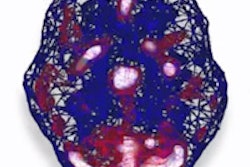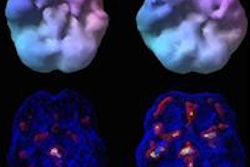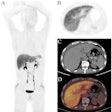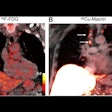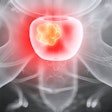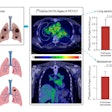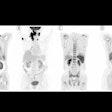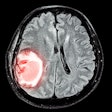PET/CT shows promise for differentiating post-traumatic stress disorder (PTSD) from mild traumatic brain injury (MTBI) in veterans, according to a study presented at RSNA 2014. The findings also help support the theory that many veterans with PTSD may actually have hormonal irregularities due to pituitary gland damage from blast injuries.
Research has shown that up to 44% of returning veterans with MTBI and loss of consciousness also meet the criteria for PTSD. Differentiating PTSD from MTBI can be challenging due to the conditions having some of the same symptoms and often normal structural neuroimaging results.
Researchers from the Saint Louis University School of Medicine used F-18 FDG-PET/CT to study the hypothalamus and pituitary glands of veterans who had suffered blast-related MTBI. They reviewed 159 brain F-18 FDG-PET/CT exams and found that FDG uptake in the hypothalamus was significantly lower in the MTBI-only group compared with normal controls. FDG uptake in the pituitary gland was significantly higher in the MTBI and PTSD group compared with the MTBI-only group.
The finding of higher FDG uptake in the pituitary glands of patients with PTSD supports the theory that many veterans with PTSD may actually have hypopituitarism, according to the researchers.
"This raises the possibility that some PTSD cases are actually hypopituitarism masking itself as PTSD," stated lead study author Thomas Malone, from the medical school's department of neurosurgery, in a statement. "If that's the case, then we might be able to help those patients by screening for hormone irregularities and treating those irregularities on an individual basis."
The increased FDG uptake in the pituitary glands of veterans with MTBI and PTSD may be due to the gland working harder to produce hormones, Malone said.
PET/CT may be an effective way to diagnose and differentiate PTSD from MTBI and offer more insight into the biological manifestations of the disorder, the researchers concluded.






